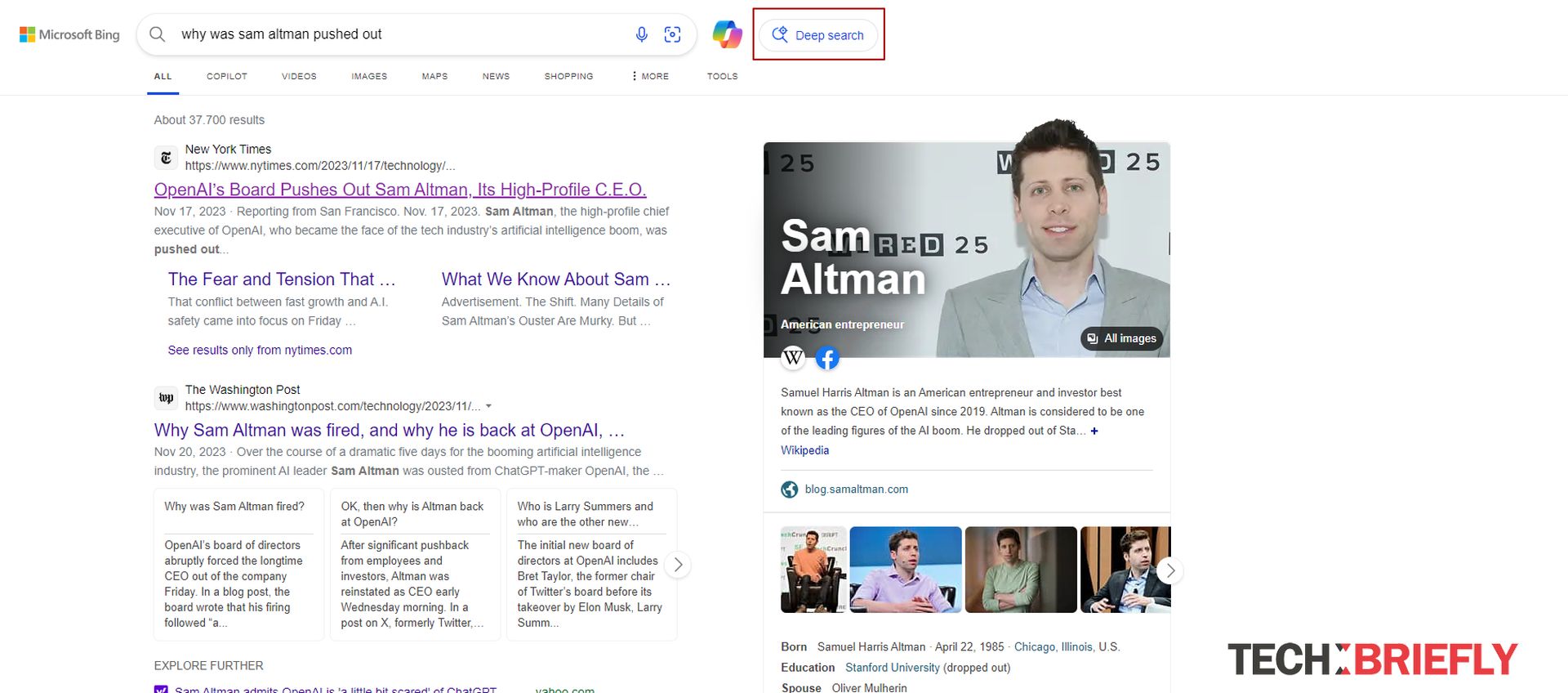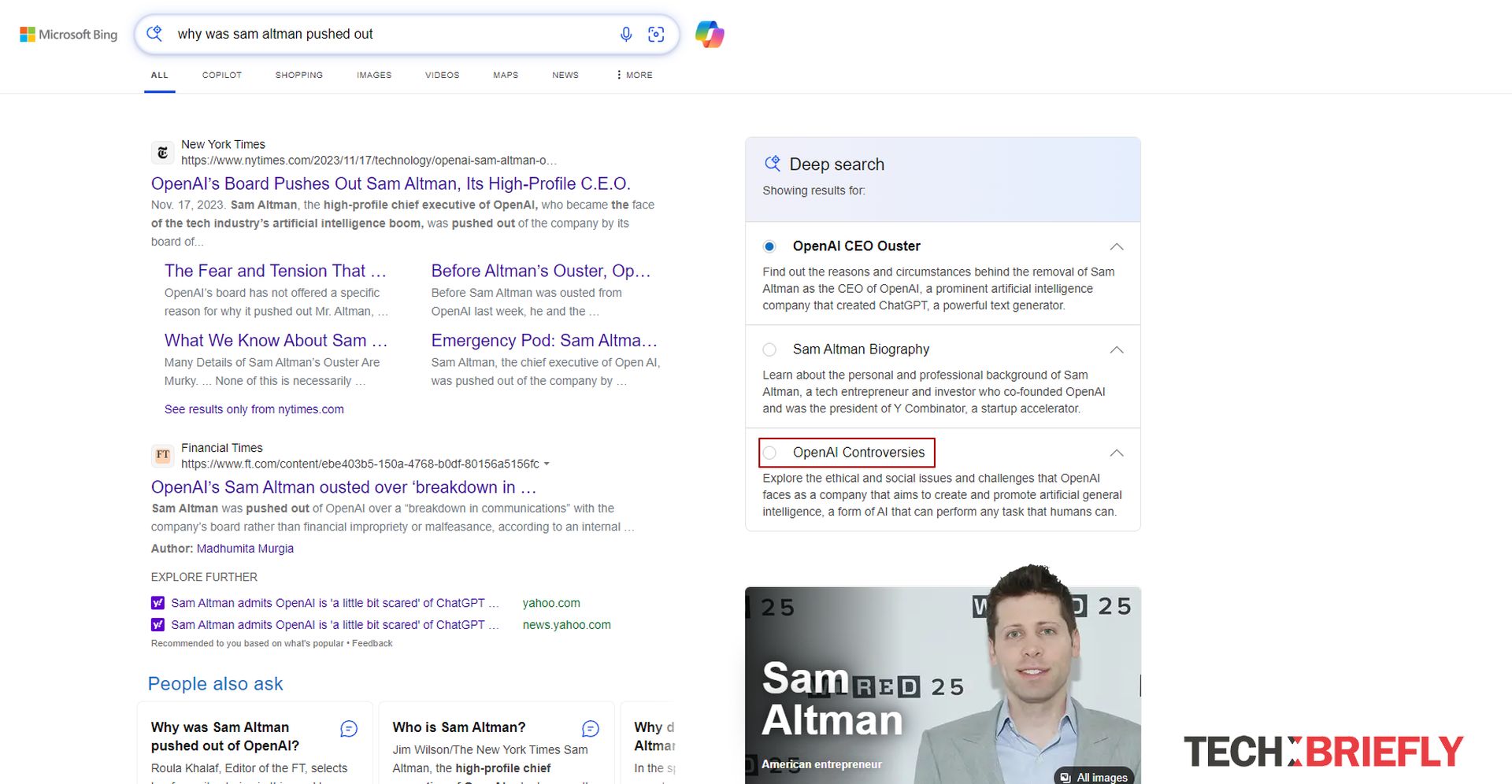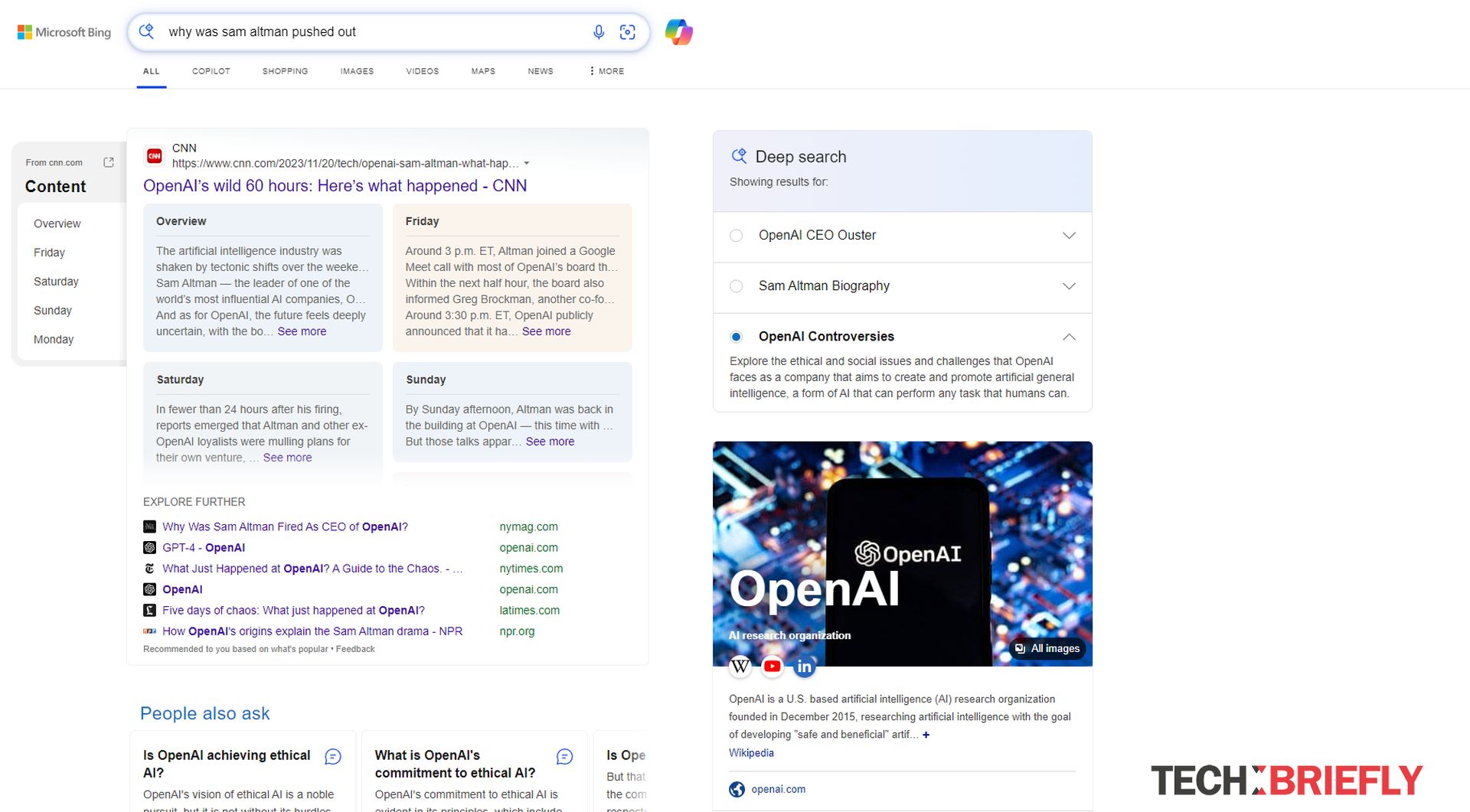Microsoft’s Bing has officially launched its Bing Deep Search feature for everyone. This marks a significant advancement in search technology, offering users a more nuanced and comprehensive approach to navigating the vast ocean of information online.
Deep Search delves deeper than traditional search results, aiming to understand the intent behind a query and provide a richer, more meaningful response.
Instead of simply presenting a list of links, Deep Search acts like a virtual research assistant, analyzing and synthesizing information from a variety of sources to deliver a more complete picture of the topic at hand.
What is Bing Deep Search?
Think of traditional search results like getting a quick summary of a topic. Bing Deep Search, however, works like a researcher who dives into the subject for you.
Here’s how it operates:
- Complex questions get complex answers: No more hunting through pages of results when you have a tricky question. Deep Search aims to analyze and synthesize information for those questions that don’t have single, straightforward answers
- Results with reasoning: Instead of just a set of links, Deep Search provides a more connected and reasoned response. You might see summaries, comparisons pulled from various sources, and different viewpoints laid out alongside each other
- Ongoing refinement: Like any good researcher, Deep Search is always learning. It continues to analyze your query even after the initial results are displayed, aiming to fine-tune the answer over time
How to use Bing Deep Search
You won’t need a special browser or app. If Deep Search is activated for your account, you’ll see a new icon at the top right of your Bing search results after performing a search. Click this, and watch your search take on a new dimension!
See the gallery below for detailed explanations of how to use Bing Deep Search.
The good, the not-so-good, and what’s changing
Bing Deep Search brings some potential advantages:
- The time-saver: If you’re short on time or overwhelmed by standard search results, Deep Search could offer a more curated and digestible information package
- Beyond the obvious: This encourages exploration of different perspectives on a topic
- The learning aid: It could be a great tool for students or people who love in-depth knowledge about a subject
Of course, this new tech is powering your experience on search engines but there are potential things to keep in mind too:
- The accuracy question: Since Deep Search compiles information from different places, it’s crucial to always check the provided sources of the information
- Potential for bias: We all know AI isn’t perfect and therefore AI may unintentionally reflect biases present in the data it analyzes
- Not a replacement for thorough research: Deep Search is a starting point, not a final destination for information gathering on your online research
A new way to search but is it for everyone?
Bing Deep Search isn’t going to turn the internet upside down. It’s a powerful new tool, but like any tool, how useful it is depends on your needs. If you often grapple with complex questions, love exploring different viewpoints, or simply desire more insight from your search results, Deep Search is worth exploring.
Bing’s move highlights a growing trend: Search engines use AI assistance (just like how Perplexity does) to deliver more than just links. It marks a shift towards search that is more insightful and curated, a potential boon for curious minds.
Featured image credit: Microsoft








